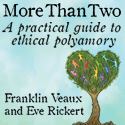 |
 |
 |
 |

Follow The InnKeeper on:
Skepticism
A skeptic is someone who inquires about things. Skepticism is a process of learning, and utilizes the principles of the scientific method to guide the learning process. The skeptical process requires withholding judgment until sufficient evidence is presented to justify holding a particular belief or opinion. Often, skeptics revert to the null hypothesis as the default, but are willing to change their minds with appropriate evidence.
The "null hypothesis" is the default position in science that there is nothing going on here. Closely related in skepticism is Ockham's Razor, which states that the simplest explanation is probably the correct one, where "simplest" means the theory with the fewest new assumptions. Also related, is the idea that the burden of proof lies with the one making the claim. All of this together means that the default state of mind for a skeptic is the "a" part of atheism and agnosticism. A skeptic is "without" until given evidence otherwise (but that "until given evidence otherwise" is equally as important as the "without" part is).
My default is to assume something is not true until I see evidence supporting the claim that it is true. This goes for deities and it goes for medical claims and it goes for paranormal activity. I have always been an inquisitive person and I have always demanded proof before I accepted things. But I'm not a bah-humbug cynic; I dearly wished that all manner of mysticism were true. I devoured books on ghost hauntings and sea monsters as a child; I learned to read tarot cards; I spoke to my stuffed animals in case they came alive at night and had a spirit that could hear me; I communed with the spirits and the trees and the birds and the animals; and believed I had an animal totem spirit who guided me. But I kept testing and pushing and looking into things.
 When I was a child, I wrote letters to Santa, as most children did. But I kept asking Santa to be pen pals. My parents thought this was cute, and that I was completely fooled. But the reason I asked to be pen pals was because I had become suspicious and I wanted proof that he really did exist. I wanted a sample of his handwriting so I could compare it to my parents' handwriting. I mailed my Christmas letters without letting my parents read it so I could see how many items on that list I actually got on Christmas morning. I desperately wanted Santa to be real, but I needed proof that he was real in order to continue believing. I could not just accept the word of an authority figure when the story ran contrary to all I understood about the universe (a fat man simply could *not* fit through my chimney and what about all those Jewish kids at school?) And when that proof did not manifest itself, in spite of my best detective skills, I lost my belief.
When I was a child, I wrote letters to Santa, as most children did. But I kept asking Santa to be pen pals. My parents thought this was cute, and that I was completely fooled. But the reason I asked to be pen pals was because I had become suspicious and I wanted proof that he really did exist. I wanted a sample of his handwriting so I could compare it to my parents' handwriting. I mailed my Christmas letters without letting my parents read it so I could see how many items on that list I actually got on Christmas morning. I desperately wanted Santa to be real, but I needed proof that he was real in order to continue believing. I could not just accept the word of an authority figure when the story ran contrary to all I understood about the universe (a fat man simply could *not* fit through my chimney and what about all those Jewish kids at school?) And when that proof did not manifest itself, in spite of my best detective skills, I lost my belief.
I questioned everyone and everything. When my parents gave me an order, I wanted to know why. I would usually be in the middle of complying with the order, but I still wanted to understand the reason behind it. Why can't I play with the power tools? Will I really hurt myself? Let's test this and find out. I asked why so often, that my parents thought I was arguing with them. I wasn't, I just needed evidence. Do girls really get accosted, mugged, and raped more often at night? Where's the report? What do the statistics say? Is there anything that can be done to mitigate the imbalance? Why can't I go out to my friends' house down the street after dark in our closed neighborhood? Where are the statistics, the cases, of girls getting accosted at night in our neighborhood, and were there really that many more cases of girls than boys getting accosted? If we are going to make rules about how to live life for our own protection, I want to make sure those rules are actually based in reality.
Skepticism is a process that requires that one investigate a claim, no matter who is making that claim. The scientific method is inherently skeptical in that it investigates claims, using a process that is designed to reduce human bias and come to conclusions that are reasonably empirical and free of human fallacy. It is a long, slow process that requires many different people and many different tests precisely because of the possibility of human error. The scientific method is the best tool ever devised for understanding how the world works. Science is the "baloney detection kit", the set of tools that helps us to separate the wheat from the chaff, the truth from the fiction.
The Inn Between © 2002

























